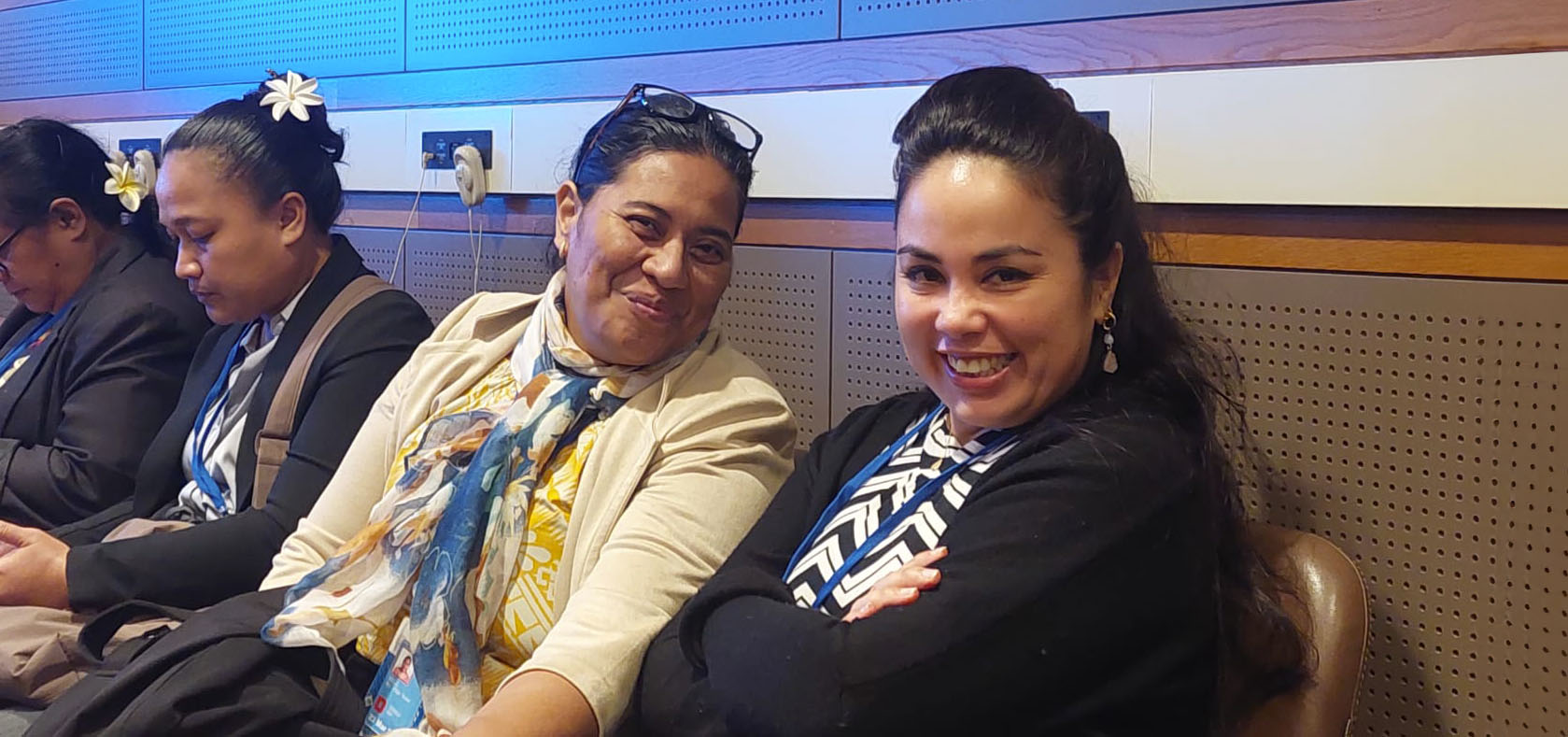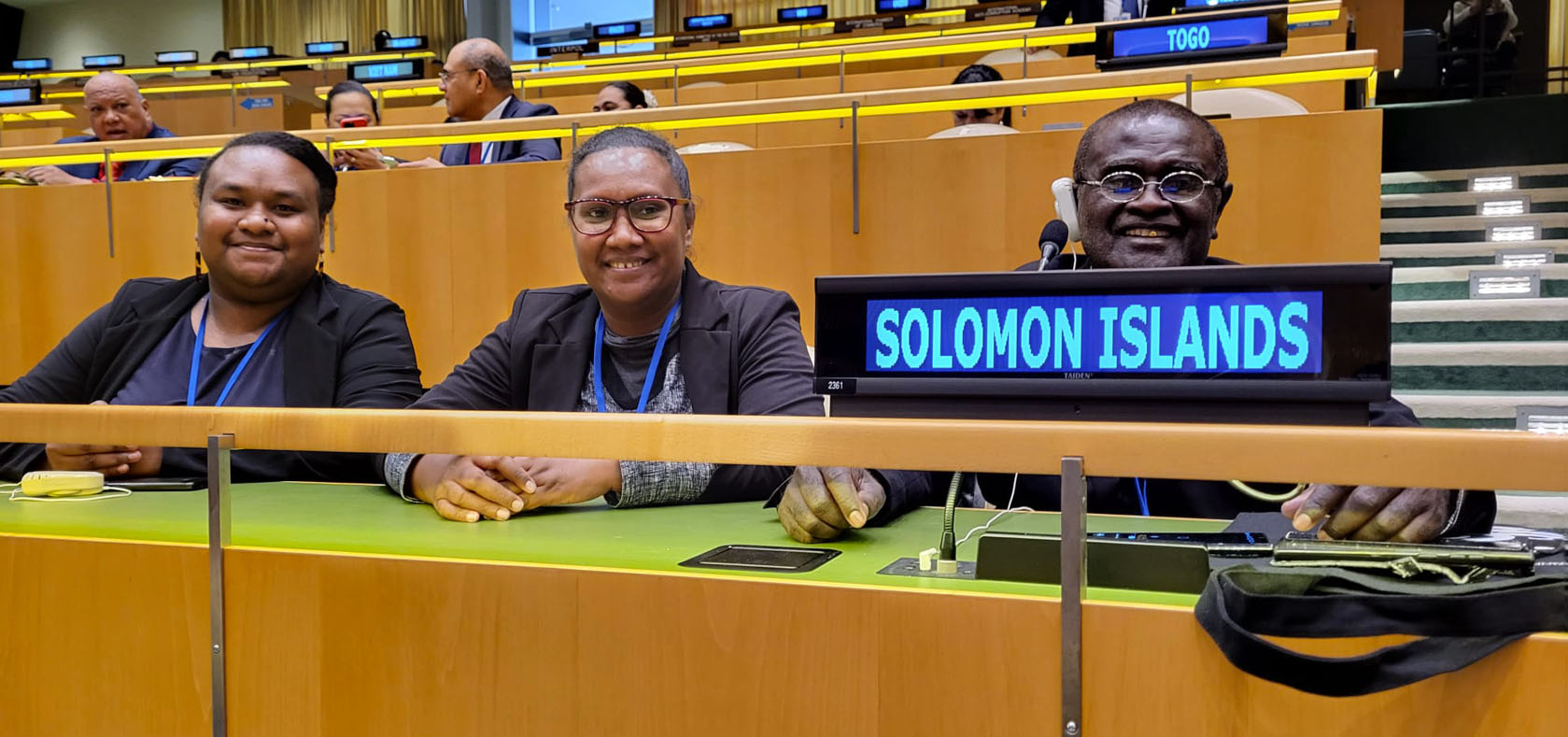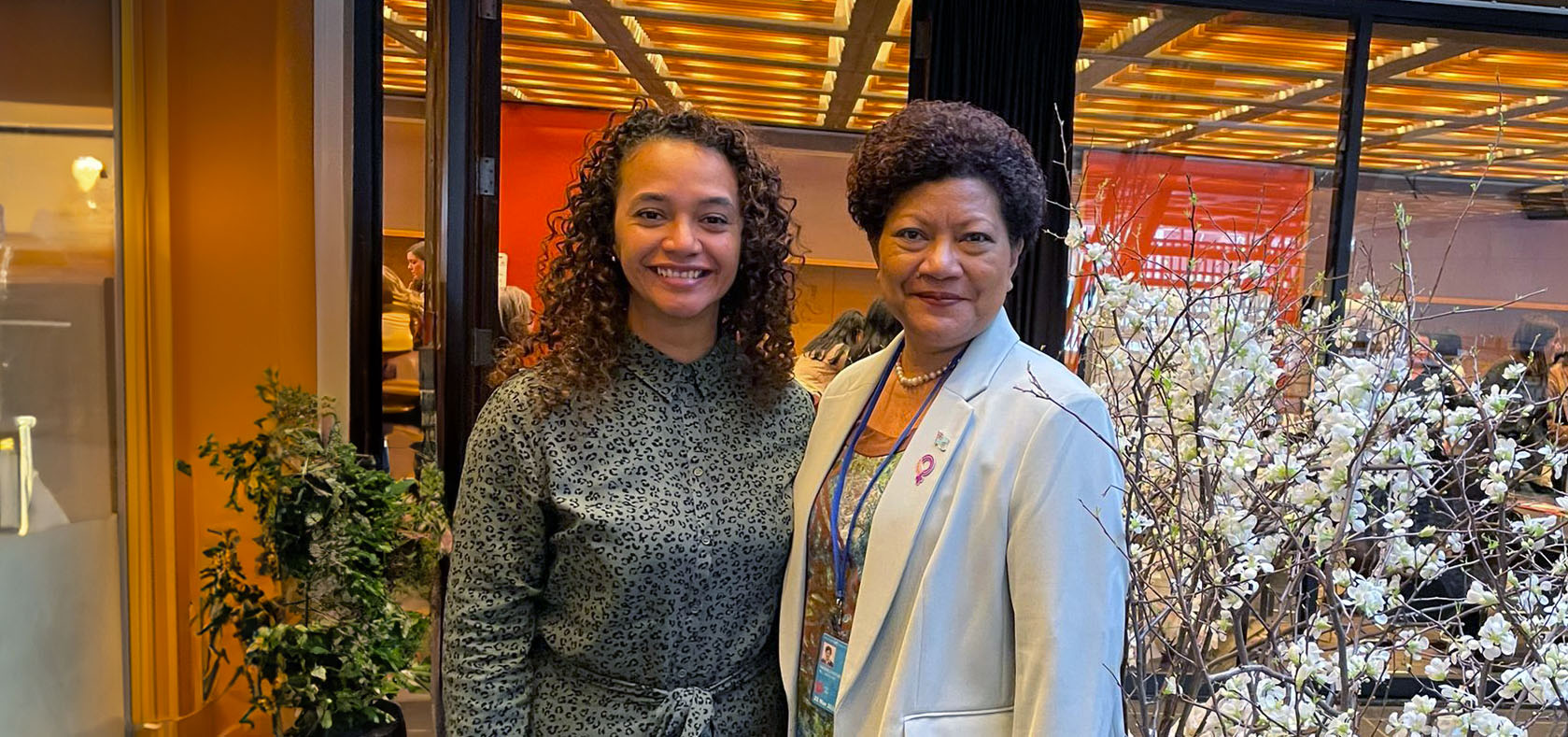Pacific women share their CSW68 experiences
Date:
As the dust settles after the conclusion of the 68th Commission on the Status of Women (CSW68), there remains much to analyse, unpack, and absorb from this significant event. The CSW68, which took place from March 11 to 22, stands as the UN’s largest annual gathering on gender equality and women’s empowerment.
Pacific representatives have safely returned home and are now sharing their insights and experiences from the event. The UN Women Multi-Country Office (MCO) for the Pacific had the opportunity to support the participation of Pacific women gender equality advocates at CSW, including Yasmine Bjornum from Vanuatu, Filiga Taukiei Nelu from Tuvalu, Nauna Revo from the Solomon Islands, and Raewyn Cornish from Fiji.
Yasmine Bjornum, Vanuatu
"We cannot end period poverty, gender-based violence, or accelerate sexual and reproductive health and rights if women are not part of the decision-making.”
Ms. Bjornum, a writer and women’s rights activist, is the founder and Executive Director of Sista, a charitable association for women and girls in Vanuatu. Reflecting on her experience, she expressed, "I expected to be quite overwhelmed. There are a lot of moving parts in the preparation for CSW, and once I was physically in New York, everything made sense." She stressed the importance of preparation and looks forward to the involvement of more Ni-Vanuatu - Indigenous Vanuatu women representatives in future CSW gatherings.
After her return home, Yasmine hopes to bridge the gap between the rhetoric of international frameworks and the grassroots realities of Vanuatu women and girls by translating the processes into Bislama, one of the official languages of Vanuatu.

Filiga Taukiei Nelu, Tuvalu
“This is my second time participating in the CSW, and while the first time I was trying to understand the space, this time I was able to use it more effectively to voice the issues that are directly related to us women in Tuvalu.”
Ms. Nelu, a lawyer, feminist, and human rights activist, emphasised the significance of the platform in addressing issues facing Tuvaluan women. She expressed gratitude to the UN Women MCO for the Pacific for enabling her participation. She said the ripple effect of this support is evident not only in the increased representation of women from civil society organisations in Tuvalu – rising from 1 to 3 attendees at CSW – but also in the strengthened relationship and trust between feminist, human rights, and gender equality activists, positioning them as effective partners for their governments at CSW.
Nauna Revo, Solomon Islands
“As a first-timer, new to the regional and global gender equality space, I am glad to see the uniformity of calls from Pacific civil society organizations (CSOs).”
Ms. Revo, Women’s Economic Empowerment Officer at the Women’s Rights Action Movement (WRAM) in the Solomon Islands, emphasised the solidarity among Pacific CSOs in advocating for gender equality.
She emphasised the crucial role of data and gender statistics in advocacy and policy change to influence attitudinal shifts.
“The CSW68 Outcome Statement acknowledges that addressing poverty necessitates informed decision-making rooted in the dissemination of disaggregated data. As a gender equality advocate in the policy and legislative sphere back home, this sentiment deeply resonated with me. Access to relevant data is a game-changer for progress.”

Raewyn Cornish, Fiji
“I have always believed in women’s health, education and economic empowerment as the key to levelling the playing field between men and women and to witness it being discussed seriously and at length on a massive platform with like-minded women who had committed their lives to the fight for equality, from around the Pacific and all over the world was encouraging and mind-expanding, to say the least.”
Ms. Cornish, an entrepreneur and wellness business owner from Fiji, highlighted the importance of discussions at CSW68 on topics such as women’s health, economic empowerment, and technology-facilitated gender-based violence.
“My initial impression of CSW68 was the global scale of the conference! It was an absolute honour and enriching experience, as I had never attended a CSW."
Ms. Cornish emphasised that a particularly impactful discussion revolved around the recognition of breastfeeding as a sustainable method for reducing greenhouse gases (GHGs) through carbon offsetting, mentioned at a side event hosted by feminist collective ‘DIVA for Equality’ titled “Disrupting Mainstream Economics.” She particularly valued the correlation between breastfeeding for human health and its contribution to sustainable environmental practices, underscoring its positive economic implications. This reinforced her longstanding belief that prioritising women’s health would contribute to Fiji's economic growth.
Additionally, she highlighted the importance of supporting women and girls in science, technology, engineering, and math (STEM) fields and careers to combat technology-facilitated gender-based violence (TF GBV).

Pacific women’s voices at the global table are vital
The four Pacific women echoed a shared conviction on the imperative for Pacific women's representation to champion their issues within their unique geo-political and social contexts. Central to their advocacy was the call to foster civil society engagement, empowering grassroots communities by returning international negotiations to the very communities they serve. They also shared tips to effectively engage at CSW68, emphasising the need for research and preparation in the lead-up to the event. They look forward to taking back their learnings to their respective spaces, to build capacity and advocate for consistent meaningful representation of Pacific women in the global discourse on gender equality. UN Women Pacific Representative Delphine Serumaga expressed that it was a privilege to support the voices of Pacific women, especially those from informal economies, who are essential in these global spaces towards crafting solutions to alleviate poverty.
“With women comprising nearly half of informal employment across 13 Pacific Islands countries and shouldering a disproportionate burden in the region, their perspectives are crucial. As frontline leaders in climate crisis resilience and bearing the brunt of economic shocks from natural disasters, Pacific women are undeniably experts in their own realities. Their invaluable insights and experiences from small island states must be heard to catalyse progress towards gender equality."